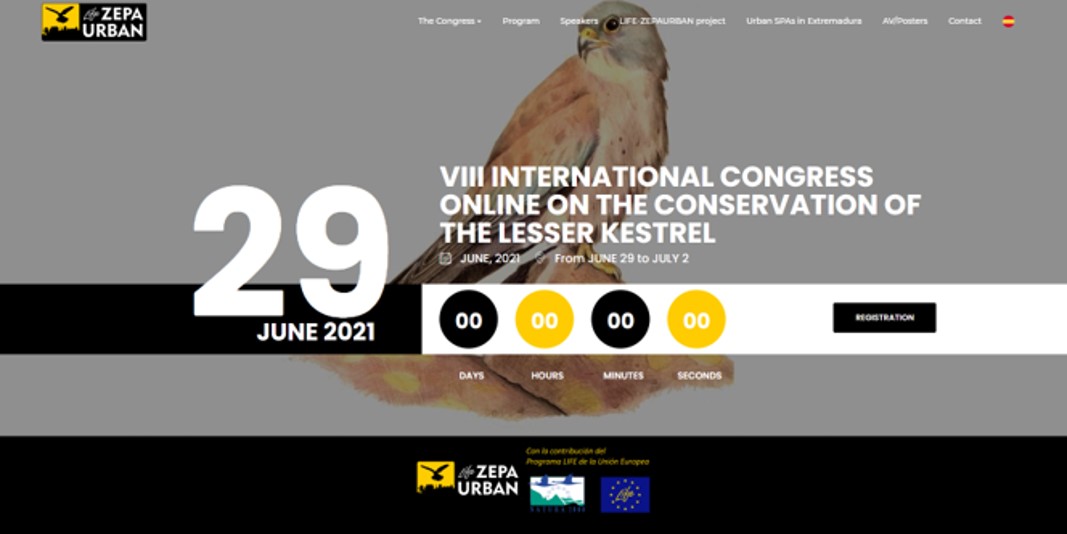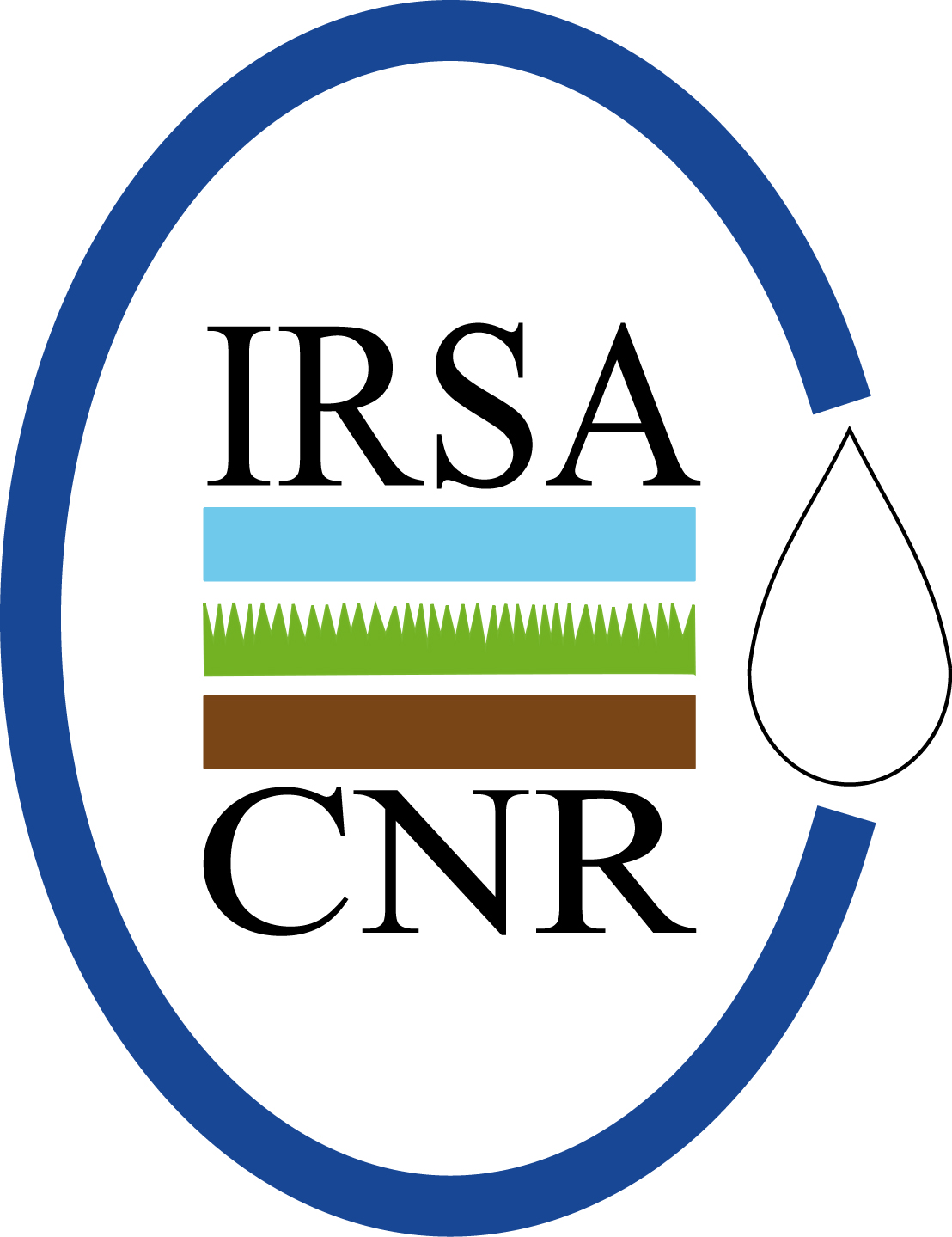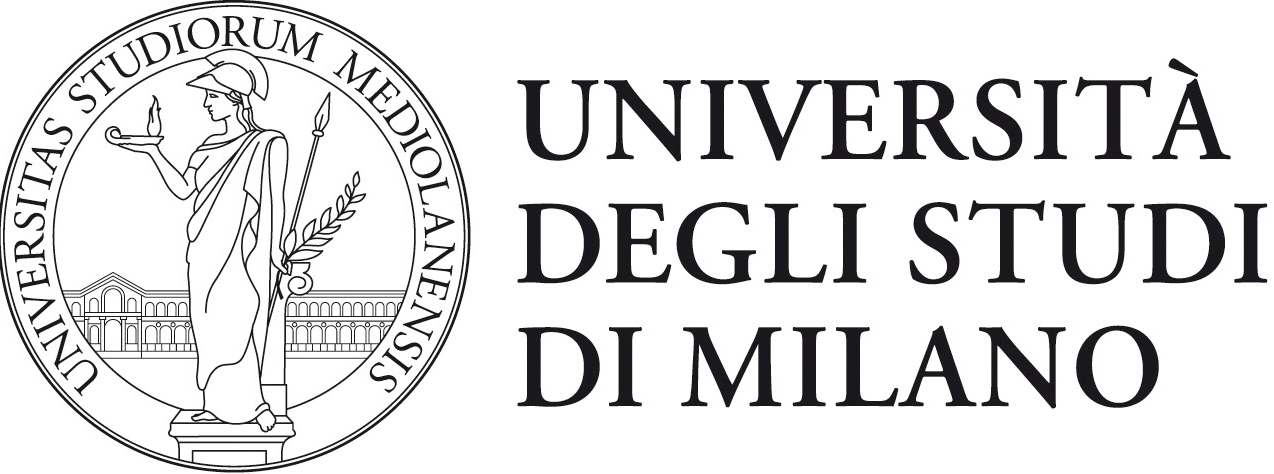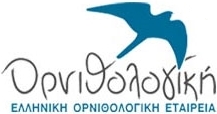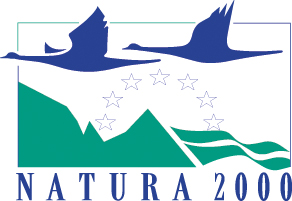Between the 29 June and the 2 July the VIII INTERNATIONAL CONGRESS ON THE CONSERVATION OF THE LESSER KESTREL took place online, hosted by the General Directorate for Sustainability of the Regional Government of Extremadura.
The main objective of the congress was to share projects, initiatives and research dealing with the problem of the conservation of the lesser kestrel (Falco naumanni) throughout its area of distribution.
The latest scientific advances on the conservation of the lesser kestrel were presented, analysing the key aspects of its biology, status and the conservation projects that are being developed throughout its area of distribution. Indeed, the congress hosted over 50 contributions including live talks, posters and short videos available on the congress website, and had over 200 participants.
On the first day of the congress, the focus was on the conservation status of the lesser kestrel in Europe. On this occasion, the project coordinator Michelangelo Morganti (CNR-IRSA) presented the general objectives of the LIFE FALKON project, along with the project partner Nikos Tsiopelas (HOS) who showed the results of the 2018-2021 monitoring activity in Greece and northern Italy.
During the second day, the results that LIFE FALKON gathered in its initial phases (Actions A) on genetics and movement ecology were presented by the project partners Diego Rubolini (UMIL) and Jennifer Morinay (ISPRA). In addition, three students who have carried out their Masters and PhD projects in the LIFE FALKON framework have also presented their short contributions (available here ).
The last two days of the congress were mainly dedicated to the presentation of conservation initiatives dedicated to the lesser kestrel, with a special reference to the extraordinary activities implemented by the project LIFE ZEPAURBAN in western Spain.
Overall, it was a widely participated congress, attended by both conservation experts and academics, and represented an unprecedented opportunity to foster and strengthen the connections between projects and to disseminate conservation of the lesser kestrel best practices in the years to come.
***
This conference is part of the LIFE Zepa Urban project coordinated by the General Directorate for Sustainability of the Regional Government of Extremadura and whose main objective is to develop a management model for urban SPAs that ensures the long-term conservation of the lesser kestrel, adopting effective measures to reduce or eliminate its main threats, as this small diurnal and migratory bird of prey is currently present in 19 areas declared as urban SPAs in Extremadura.

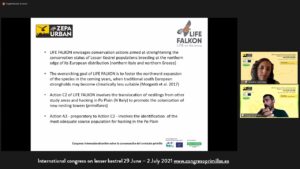
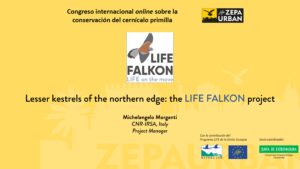
2 July 2021

 en
en it
it el
el